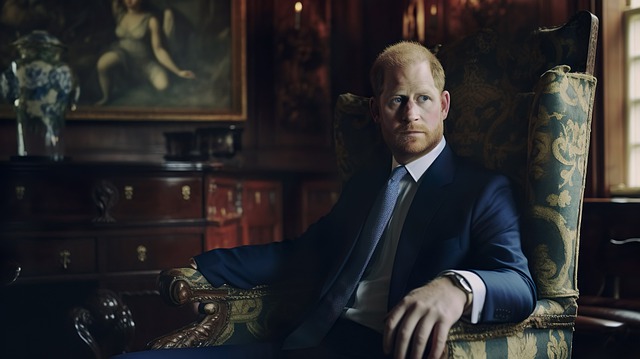In a recent court appearance in London, Prince Harry made a bold and impactful statement, expressing his deep concerns about the media’s conduct. Accusing the press of being ‘vile,’ the Prince held them accountable for their actions and suggested that they had “blood on their hands.” This article aims to shed light on Prince Harry’s powerful statement and delve into the topic of media responsibility in the modern era.
Prince Harry’s Accusation
During the court proceedings, Prince Harry did not mince his words. He criticized the media’s incessant invasion of his privacy and their relentless pursuit of sensational headlines. He argued that such practices had severe consequences on individuals’ mental health and wellbeing, including his own.
The Prince’s claim that the press had “blood on their hands” implies that the media’s actions can lead to dire consequences. While it may be seen as a strong statement, it highlights the potential harm caused by irresponsible journalism and unethical media practices.
Understanding Media Responsibility
Media responsibility encompasses the ethical obligations and accountability that journalists and media organizations have towards the public. It involves the duty to report truthfully, without bias, and to respect individuals’ privacy rights.
Unfortunately, in the digital age, where information spreads rapidly, media outlets often prioritize speed and sensationalism over accuracy and responsible reporting. The competition for viewership and the constant pressure to generate revenue can lead to compromising journalistic ethics.
The Impact of Irresponsible Journalism
When the media prioritizes profit and sensationalism over truth and responsible reporting, it can have detrimental effects on society. Individuals in the public eye, such as Prince Harry, are subjected to constant scrutiny, invasion of privacy, and misleading narratives. This not only affects their mental health but can also have wider consequences on public opinion and societal discourse.
Moreover, the media’s influence extends beyond the lives of public figures. Misinformation and biased reporting can shape public perception, fueling division and misunderstanding. It is crucial to recognize the power that the media holds and the responsibility it has to wield that power ethically.
Striving for a Responsible Media Landscape
Prince Harry’s bold statement serves as a reminder that responsible journalism is paramount in today’s world. Media organizations should prioritize accuracy, fairness, and integrity in their reporting. It is vital to strike a balance between freedom of speech and the ethical boundaries that protect individuals’ privacy and mental well-being.
Additionally, fostering media literacy among the general public is essential. By educating individuals on how to critically evaluate news sources and discern factual reporting from sensationalism, society can become more resilient to misinformation.
Conclusion
Prince Harry’s condemnation of the press in a London court shed light on the issue of media responsibility and the potential consequences of unethical journalism. The media landscape needs to prioritize accuracy, fairness, and respect for privacy, rather than succumbing to sensationalism and profit-driven motives. By doing so, we can foster a healthier media environment that upholds the principles of responsible reporting and respects the well-being of individuals in the public eye and the wider society.












